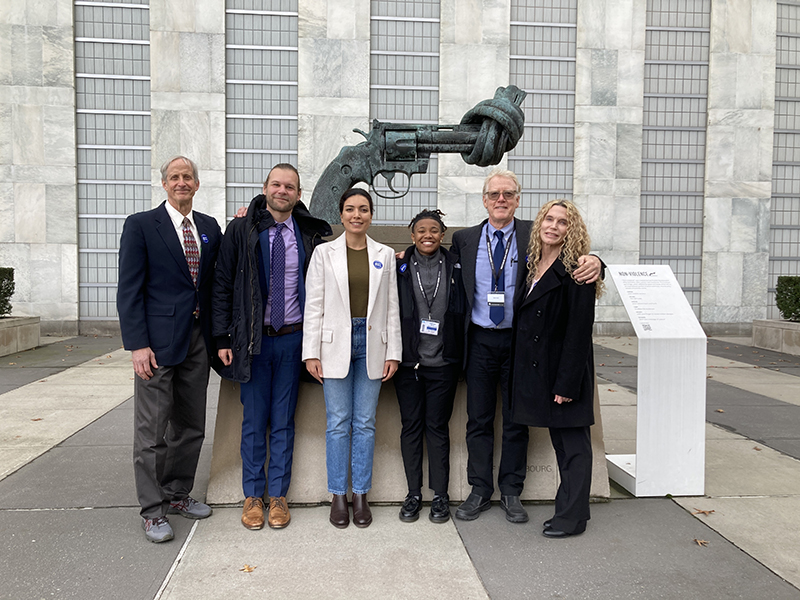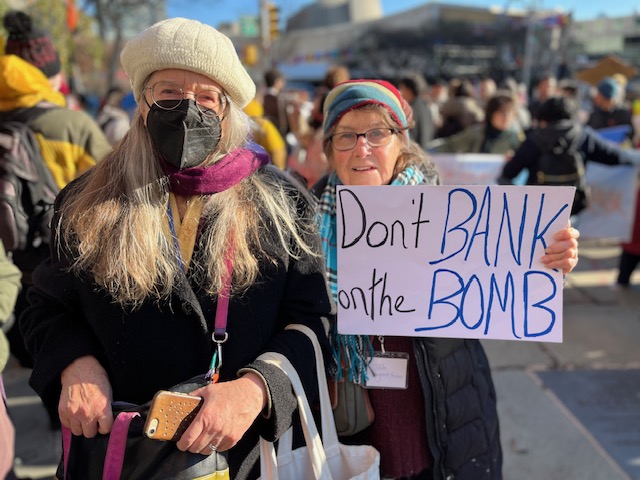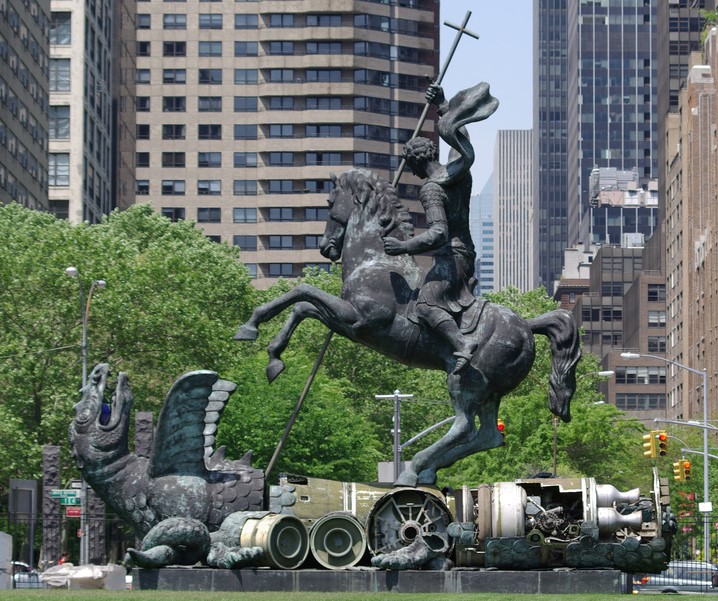By John Reuwer, World BEYOND War, December 1, 2023
For those of us unable to bury ourselves completely in our ordinary lives of family, friends, and work to avoid seeing the tragedies of horrific violence unfold all around us, these are dark times indeed. The multiple wars that started after September 11, 2001 have only multiplied, and rarely end, imparting suffering to tens of millions of people around the globe. The risk of nuclear war is greater than anytime since the Cuban missile crisis, with all nine nuclear states building new nuclear weapons, several increasing their totals for the first time in 35 years, and several practicing nuclear war games on each other’s borders. At least one is threatening to use nuclear weapons if anyone challenges its aggression. The global military budget is well over $2 trillion dollars a year to wage current wars and prepare for the next ones. Two nuclear armed alleged democracies seem determined to carry out genocide in Gaza.
So it was wonderful to spend three days at the United Nations in New York amid hundreds of bright people attending the second meeting of states parties to the Treaty on the Prohibition of Nuclear Weapons (TPNW). The 63 governments who have ratified the Treaty, for whom it is now international law to eschew any activity supporting nuclear weapons and to try to remediate the enormous harms already done by them, meet yearly to see how they are doing, help each other implement the law, and encourage others to join. Accompanying the diplomats are doctors, lawyers, scientists, activists, scholars, and victims from many organizations, living the antidote to despair – each working hard to advance the sanity of this treaty among a world awash in nuclear madness. Leading the dozens of civil society efforts was the International Campaign to Abolish Nuclear Weapons, which was the ten-year driving force behind the negotiation of the TPNW in 2017. This was a major international treaty driven primarily by civil society, and a potent reminder that ordinary people can make a huge difference in a world usually dominated by the rich and powerful.
Leaders of civil society organizations were allowed to present their views in the plenary sessions along with the government representives. These statements were supplemented by educational sessions on dozens of topics. Most powerful for me were the young students from many countries who condemned nuclear weapons as creating insecurity and violating their right to life, who demanded more inclusion of youth and women in policy making. Scientists reminded us of the climate and agriculture research predicting that even a limited regional nuclear war will darken the earth’s skies enough to cause mass starvation of billions after the blast and fallout kills the first hundred million people. Representatives of the indigenous peoples who were harmed by weapons production and testing in the U.S., Australia, Khazakstan, and the Pacific gave stirring testimony of the loss of their land and multigenerational health, demanding justice for what they have suffered. The parties to the TPNW formally agree to address their concerns for healing and remediation. Several of the remaining Hibakusha (nuclear bomb survivors) from Japan shared their incredible stories and pleas for never again. Lining the hallways were works of beautiful art from the dawn of the nuclear age to the present. Concerts, vigils, prayer services, and protest marches were held at city venues nearby.
Representatives from the organizations that we count on to rescue us during disasters all made statements that there will be no meaningful help after multiple nuclear explosions . This included the International Federation of the Red Cross and Red Crescent, the World Medical Association, the International Council of Nurses, and the World Federation of Public Health Associations. All of these bodies agree with International Physicians for the Prevention of Nuclear War that the only way to assure that nuclear weapons will not cause an unmitigated disaster for humanity is to eliminate them. The principle means of doing that will be educating as many people and leaders as we possibly can about the threat these weapons pose.
I noticed among the many statements decrying nuclear weapons a sentiment that I heard less frequently at antinuclear events in the past – that war itself is the problem, and that we would do well to oppose all war rather than expend energy supporting one side or the other in any given war. This created the opportunity to introduce folks to World BEYOND War, whose mission is replace war with a just and sustainable peace.
Mingling with capable people dedicated to preserving life and our future through the TPNW illuminated the world that often seems dark with hatred and killing, and energized me to continue the current work of creating space for peace and human dignity.











